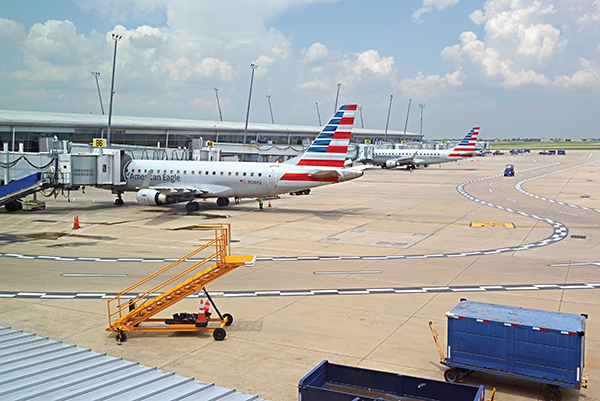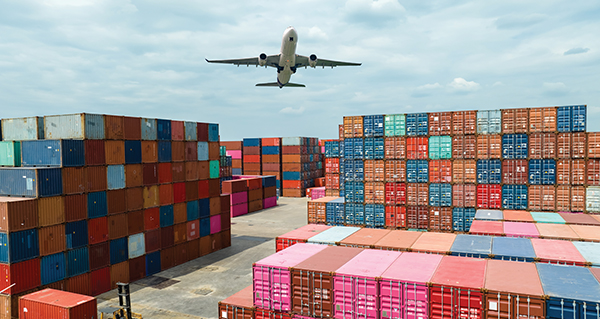
If your company does business internationally, Indiana’s Foreign-Trade Zone (FTZ) program can save it time, money and hassles. The FTZ program helps businesses improve their competitive position against foreign producers. Some of the many benefits of the FTZ program include duty deferrals, inverted customs duty savings, reduced insurance costs and overall simplification of import/export procedures.
Foreign-Trade Zones allow businesses to operate inside the U.S. with many of the same advantages they would have received by operating their business overseas. Not only do FTZs benefit the businesses they serve, but they also benefit the communities they’re located in by keeping the jobs, capital and infrastructure in the communities rather than shipping them overseas. Companies based in the U.S. can import items, reduce operational costs, create immediate bottom-line savings and improve import efficiencies. Nationally, over 550,000 Americans are directly employed in FTZ environments, importing almost $949 billion in merchandise according to the 85th FTZ Board Annual Report filed with Congress.
Essentially, a Foreign -Trade Zone is a designated area within the United States (usually a production facility, warehouse or pipeline) into which imported goods can be admitted without being subject to immediate customs duties (import taxes) and where substantial other cost savings can be enjoyed. There are numerous benefits to operating a business within an FTZ environment: it can delay, eliminate or reduce costs associated with importing raw materials, parts or finished goods.
Indiana’s Foreign-Trade Zone: INzone

INzone is a crucial driver of the state’s economic growth and global competitiveness. INzone is a local 501(c)6 non-profit whose federally defined service area covers 41 counties in central Indiana. It provides support, guidance and facilitates FTZ program access assistance to manufacturers and distributors so they can gain significant financial savings and enjoy the trade related benefits that the federal program offers. The Indianapolis Airport Authority (IAA) is the grantee that sponsors companies seeking access to the import/export benefits offered through the program.
Established by a 1934 Congressional Act to enhance and bolster the U.S. economy after the Great Depression, the FTZ program has become an integral part of Indiana’s business landscape, offering unique benefits to companies engaged in international import and export.
Imported merchandise held or manufactured within an FTZ environment can be indefinitely stored, exhibited, inspected, produced or assembled. Indiana, strategically located in the Midwest, has the entire state Alternative Site Framework (ASF) designated under the FTZ program to boost its prominence as a global manufacturing, logistics and distribution hub. The ASF framework provides the grantees in Indiana (public entities authorized by state legislation to sponsor FTZ activities) the ability to provide FTZ designation to a company located anywhere within the state in an expeditious manner through the filing by the grantee of a relatively simple application.
The FTZ program enhances Indiana’s global competitiveness by offering a range of benefits to international businesses involved in importing raw materials, partially finished or finished goods to the U.S. These benefits include, but are not limited to:
Duty deferral. Duty deferral is a significant advantage to those businesses participating in the FTZ program. Import duties (tax) are deferred until the raw materials or goods are removed from the zone and enter the U.S. commerce stream, thus providing businesses with substantially improved cash flow.
Duty reduction. Duty reduction lowers the import duties. These savings are often realized in an active FTZ environment when imported raw materials or components (inputs) are used in the production of a finished product (output), where the duty rate on the inputs are higher than the duty rate on the output. Many active FTZ users benefit from this inverted tariff relief, which is a key benefit that encourages domestic production and job creation and retention.
Duty elimination. Any imported raw material, parts or finished product stored or manufactured within an FTZ environment will have no import duty collected if exported outside the U.S.
Custom benefits. Customs & Border Protection (CBP) filing procedures for FTZ users often result in quicker goods movement, efficient electronic paperwork clearances and streamlined logistics.
Merchandise processing fee (MPF). The MPF is charged at 0.3464 percent of the cargo value that is declared on the commercial invoice, with a maximum (cap) that is adjusted on an annual basis (October 1 each year). Effective October 1, 2023, the maximum MPF will be $614.35, which means that any entries with a value of greater than $177,350 will not be subject to more than the $614.35 cap. Since most FTZ users file a single weekly entry with values that greatly exceed $177,350, they will be charged a single maximum MPF for all shipments entered from the FTZ during that week and can realize a substantial amount of savings as compared to if they had to file separate entries for each shipment.

Duty-free labor and profit. Labor, profit and overhead from operations within an FTZ are not subject to customs duties.
Simplified returns. International returns processed through an FTZ do not require a duty payment, eliminating the cost and headaches associated with Duty Drawback.
No quotas. Products that have quota restriction within the U.S. may be held in an FTZ without any restrictions until the quota is lifted.
The FTZ program plays a vital role in attracting foreign direct investment (FDI) to Indiana by offering globally competitive
advantages to businesses. The FTZ program entices multinational corporations to establish their operations within the state. The influx of investment has a positive ripple effect, creates new jobs and contributes significantly to Indiana’s economic prosperity.
The success of Indiana’s Foreign-Trade Zone program is evident in its significant impact on the state’s position in the global marketplace. Indiana now stands as the seventh highest state for imports through an FTZ and the eighth highest for exporting goods through the FTZ program. Such rankings underscore the program’s ability to boost international trade and solidify Indiana’s status as a significant player in the global economy.
Indiana’s FTZ program supports the state’s economic success, facilitates investments, stimulates job creation and retention and elevates competitive advantages in global trade. As businesses continue to innovate and adapt to evolving international markets, the FTZ program remains key in helping Indiana manufacturing and logistic businesses save money and time.
Indiana: An Ideal Location with Superior Infrastructure
Central Indiana is a great place to do business internationally. It is centrally located in the U.S. with a superior transportation infrastructure, allowing quick importing and exporting of goods throughout the world.
Not only is it continually ranked as a great and affordable place to live, but it is also home to a large available workforce that is highly skilled and educated.
Add to that the low cost of doing business in Central Indiana and it shouldn’t be a surprise that the area is not only attracting top U.S. companies but foreign companies as well. As a result, the state ranks first in the nation in attracting new jobs through foreign direct investment (FDI).
These are just a few of many reasons why Central Indiana and INzone are a great choice for businesses.
How Much Can You Save in INzone?
Contact a qualified FTZ consultant listed at www.inzone.org/resources/service-providers for a cost/benefit analysis. INzone pays for your confidential analysis, up to $2,500 for distribution and $5,000 for manufacturing reports. The cost/benefit analysis will help you make an informed decision about participation in the FTZ program. T&ID


There are no comments
Please login to post comments